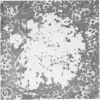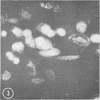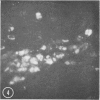Abstract
An agent which possessed the properties of herpesviruses was isolated from the leukocytes of 71 out of 80 (88.7%) apparently normal Iowa horses. It was ether- and heat-sensitive, DNA type, and produced type-A intranuclear inclusion bodies in cell cultures. Electron micrographs revealed a virion of typical herpesvirus structure. Leukocyte isolate virus could be differentiated from equine rhinopneumonitis virus (ERV) by serum neutralization, by growth differences in rabbit kidney cells, and by fluorescent antibody staining. Specific neutralizing antibody against this agent was found in a pooled serum sample from normal horses and in the serums of herpesvirus carrier horses. Serum from a mare inhibited growth of both ERV and leukocyte viral isolates. Normal sheep, calf, and rabbit serum did not neutralize either virus.
Full text
PDF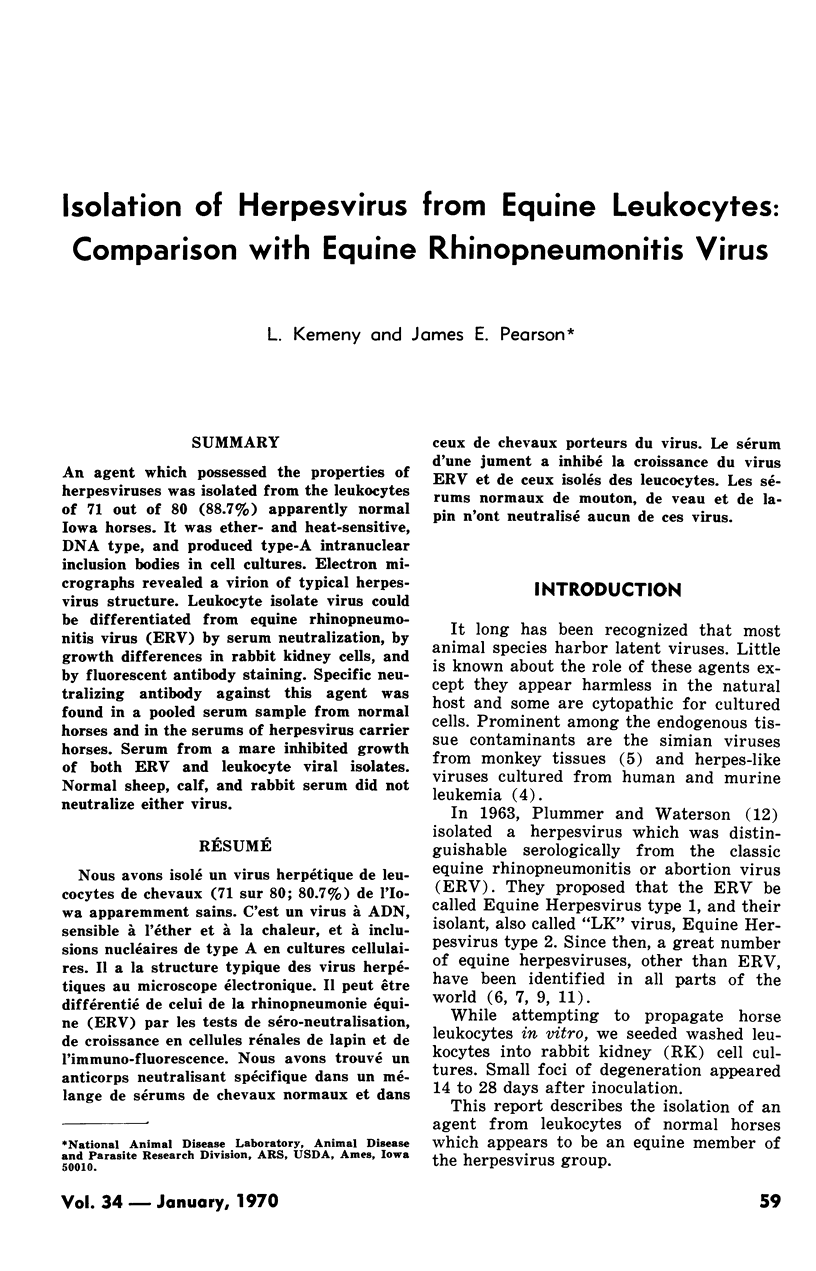
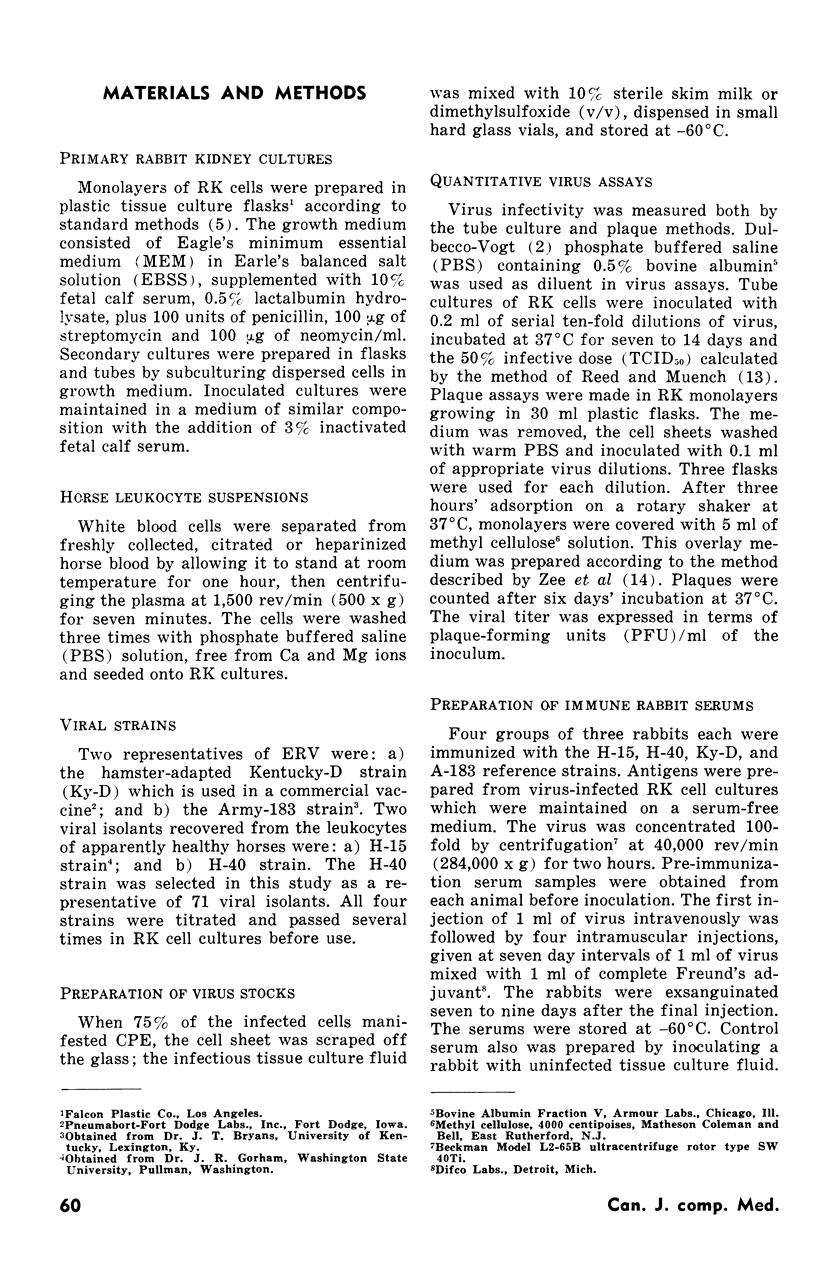
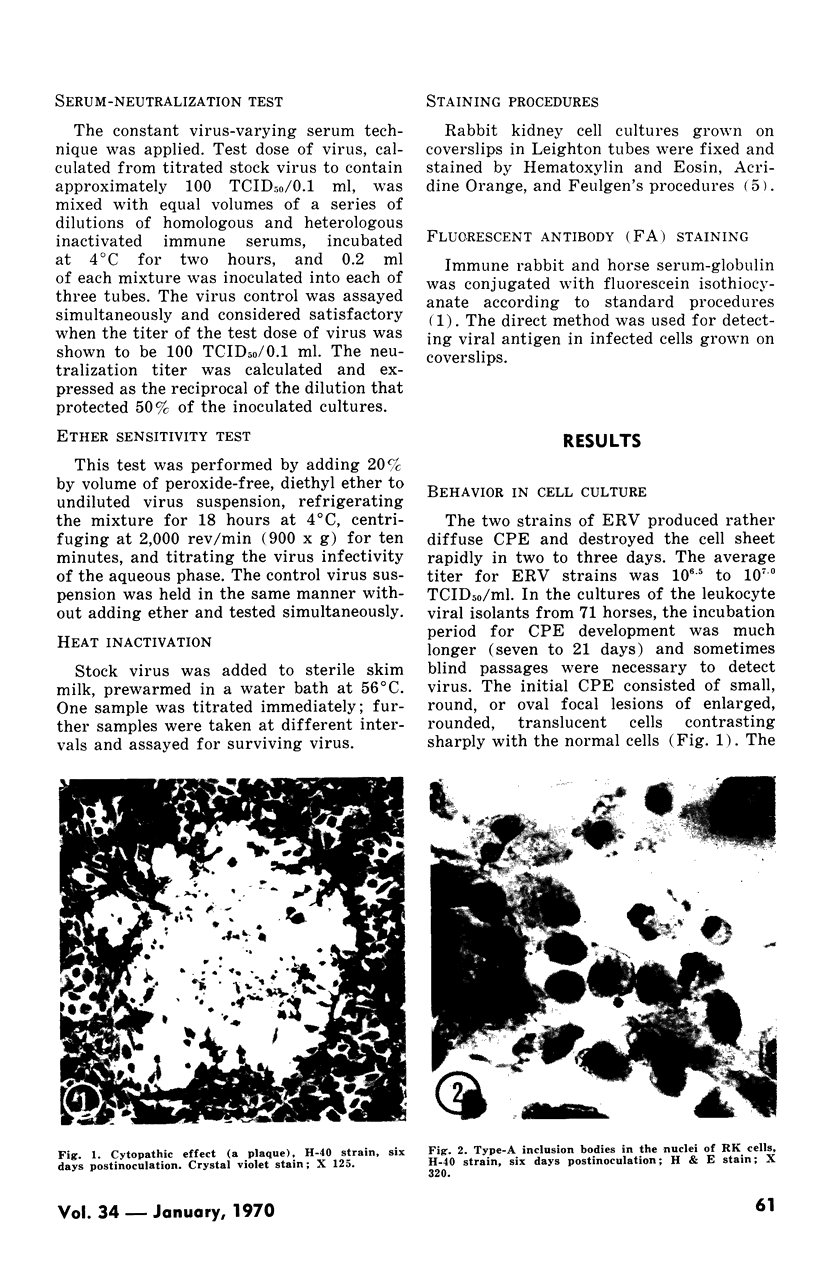
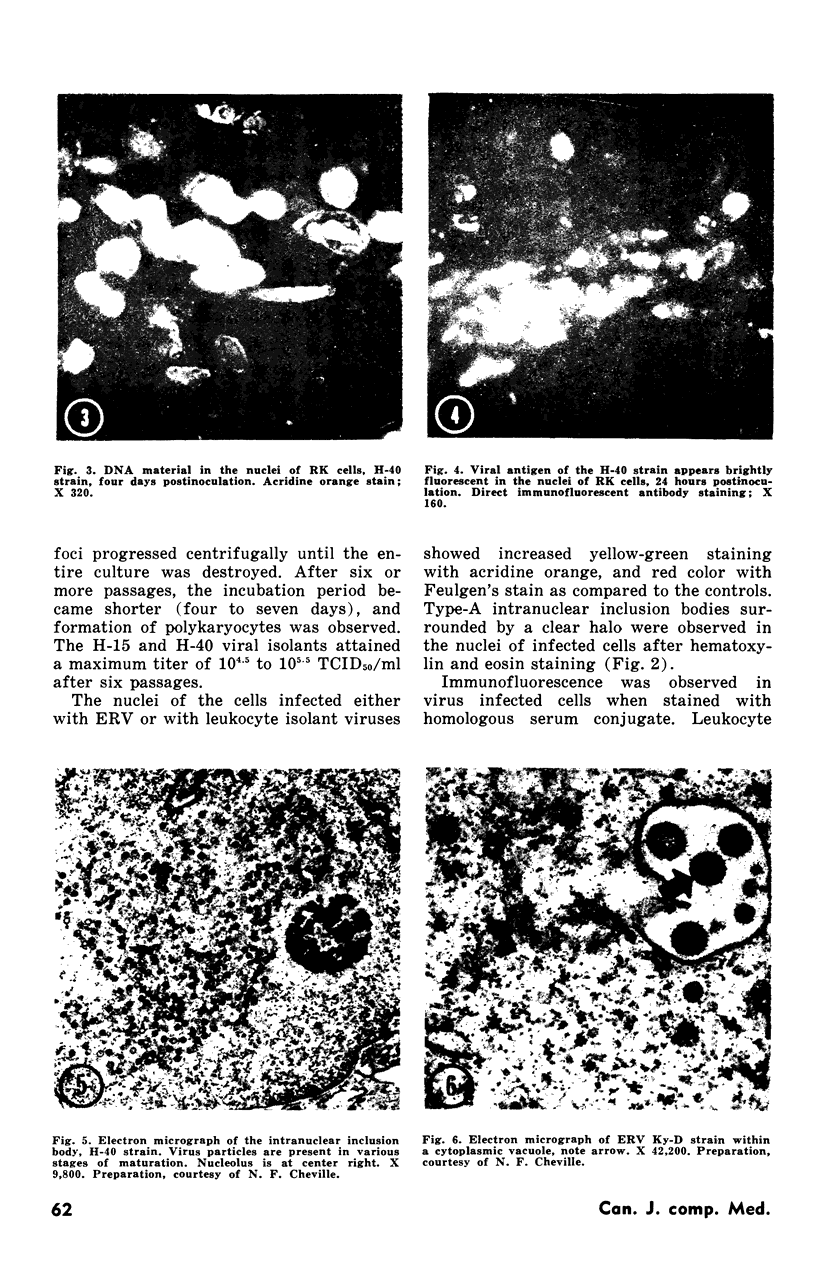
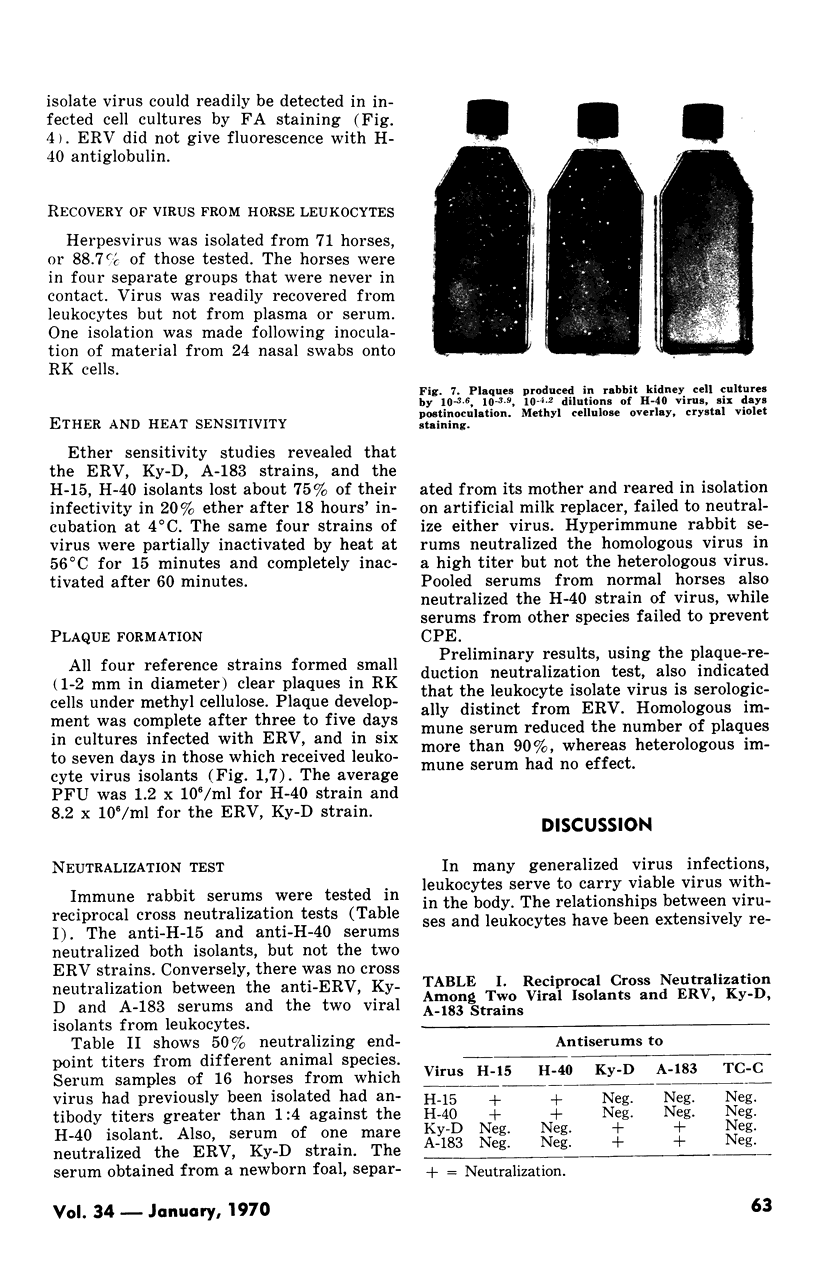
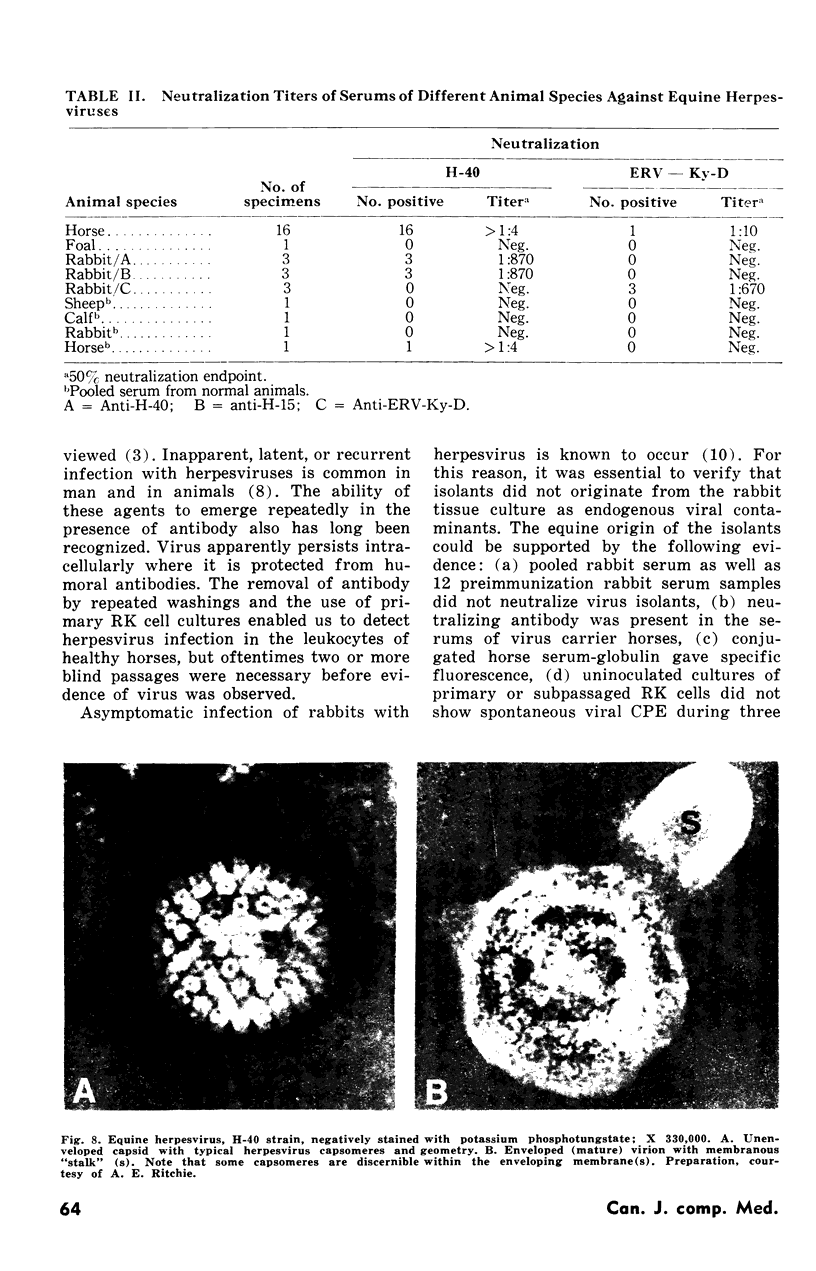
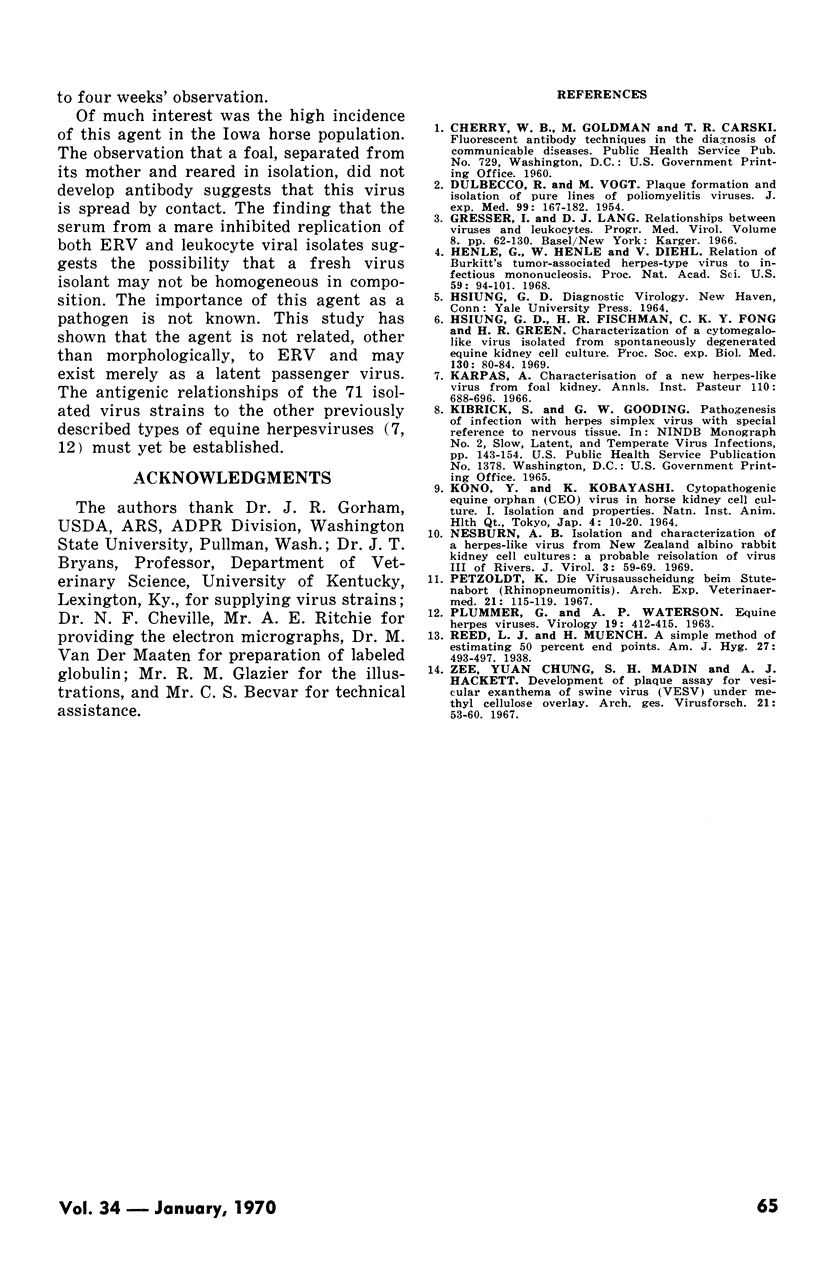
Images in this article
Selected References
These references are in PubMed. This may not be the complete list of references from this article.
- DULBECCO R., VOGT M. Plaque formation and isolation of pure lines with poliomyelitis viruses. J Exp Med. 1954 Feb;99(2):167–182. doi: 10.1084/jem.99.2.167. [DOI] [PMC free article] [PubMed] [Google Scholar]
- Gresser I., Lang D. J. Relationships between viruses and leucocytes. Prog Med Virol. 1966;8:62–130. [PubMed] [Google Scholar]
- Henle G., Henle W., Diehl V. Relation of Burkitt's tumor-associated herpes-ytpe virus to infectious mononucleosis. Proc Natl Acad Sci U S A. 1968 Jan;59(1):94–101. doi: 10.1073/pnas.59.1.94. [DOI] [PMC free article] [PubMed] [Google Scholar]
- Hsiung G. D., Fischman H. R., Fong C. K., Green R. H. Characterization of a cytomegalo-like virus isolated from spontaneously degenerated equine kidney cell culture. Proc Soc Exp Biol Med. 1969 Jan;130(1):80–84. doi: 10.3181/00379727-130-33492. [DOI] [PubMed] [Google Scholar]
- Karpas A. Characterization of a new herpes-like virus isolated from foal kidney. Ann Inst Pasteur (Paris) 1966 May;110(5):688–696. [PubMed] [Google Scholar]
- Nesburn A. B. Isolation and characterization of a herpes-like virus from New Zealand albino rabbit kidney cell cultures: a probable reisolation of virus 3 of Rivers. J Virol. 1969 Jan;3(1):59–69. doi: 10.1128/jvi.3.1.59-69.1969. [DOI] [PMC free article] [PubMed] [Google Scholar]
- PLUMMER G., WATERSON A. P. Equine herpes viruses. Virology. 1963 Mar;19:412–416. doi: 10.1016/0042-6822(63)90083-7. [DOI] [PubMed] [Google Scholar]
- Petzoldt K. Die Virusausscheidung beim Stutenabort (Rhinopneumonitis) Arch Exp Veterinarmed. 1967;21:115–119. [PubMed] [Google Scholar]
- Zee Y. C., Hackett A. J. Development of plaque assay for vesicular exanthema of swine virus (VESV) under methyl cellulose overlay. Arch Gesamte Virusforsch. 1967;21(1):53–60. doi: 10.1007/BF01258476. [DOI] [PubMed] [Google Scholar]



